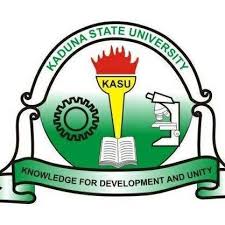Government Keypoints; Forms Of Government; Many governmental structures have been recognized and examined in political science. Every type of government has distinctive traits and guiding principles that control how authority is used, decisions are made, and policies are put into effect.
Related; Government Keypoints; State/Nation/Society
The definitions, characteristics, benefits, and drawbacks of six different types of government—monarchy, aristocracy, oligarchy, autocracy, republicanism, and democracy—will be covered in this class note. Knowing these political structures can improve our understanding of the variety of political systems present in the world as well as the advantages and disadvantages of each.
Related; Government Keypoints; Definitions Of Government
Forms Of Government
Monarchy:
Definition: Monarchy is a form of government where the state is ruled by a single person, usually a king or queen who inherits the position by birthright.
Features:
- The monarch has absolute power and authority over the state and its citizens.
- The monarch is not elected and their power is usually hereditary.
- The monarch has control over the military, executive, and legislative branches of the government.
- The monarch’s power may be limited by a constitution or other legal framework.
- In a constitutional monarchy, the monarch may have ceremonial duties and the real power is held by elected officials.
Merits:
- The monarchy provides a sense of stability and continuity as the same family often rules for generations.
- The monarch is usually well-educated and trained to lead, which can lead to effective governance.
- Monarchs often act as a symbol of national unity and pride.
Demerits:
- Monarchies can be expensive as the royal family often requires significant resources to maintain their lifestyle and public image.
- Monarchies can be undemocratic as the citizens do not have a say in who their leader is and their power is often unchecked.
- Monarchies can be prone to abuse of power as the monarch is not held accountable to the people.
Aristocracy:
Definition: Aristocracy is a form of government where power is held by a small group of elite individuals, usually from wealthy and powerful families.
Features:
- Power is held by a small group of individuals who are often born into privilege.
- Aristocrats often have control over the military, executive, and legislative branches of the government.
- Aristocrats often have significant wealth and resources at their disposal.
- In a constitutional aristocracy, the power of the aristocrats may be limited by a constitution or other legal framework.
Merits:
- Aristocrats are often well-educated and trained to lead, which can lead to effective governance.
- Aristocracies can be stable as the same families often hold power for generations.
- Aristocracies may be able to govern more efficiently than democracies as there is less disagreement and debate.
Demerits:
- Aristocracies are often undemocratic as the citizens do not have a say in who holds power.
- Aristocracies can be prone to abuse of power as the aristocrats are not held accountable to the people.
- Aristocracies may be less representative of the needs and want of the citizens as the aristocrats often only represent their own interests.
Oligarchy:
Definition: Oligarchy is a form of government where power is held by a small group of individuals, usually for their own benefit.
Features:
- Power is held by a small group of individuals who often hold significant wealth and resources.
- Oligarchs often have control over the military, executive, and legislative branches of the government.
- Oligarchs often use their power to benefit themselves and their allies.
- Oligarchies may be disguised as democracies, but the citizens do not have a real say in who holds power.
Merits:
- Oligarchies may be able to govern more efficiently than democracies as there is less disagreement and debate.
- Oligarchs are often well-educated and trained to lead, which can lead to effective governance.
Demerits:
- Oligarchies are often undemocratic as the citizens do not have a say in who holds power.
- Oligarchies can be prone to abuse of power as the oligarchs are not held accountable to the people.
- Oligarchies may be less representative of the needs and want of the citizens as the oligarchs often only represent their own interests.
Autocracy
Related; Government Keypoints; Political Socialization/Political Participation/Political Culture
Autocracy is a form of government in which one person has unlimited power or authority over the state. The ruler in an autocratic system exercises his or her power arbitrarily and without any form of accountability.
Features of Autocracy:
- The ruler has total control over the government and citizens.
- The citizens have no say in the decision-making process.
- The ruler can enforce laws and policies without opposition or checks and balances.
- There is no separation of powers between the executive, legislative, and judicial branches of government.
Merits of Autocracy:
- Decisions can be made more quickly and efficiently.
- There is a lower chance of political instability.
- Autocrats can often suppress dissent and maintain order.
Demerits of Autocracy:
- Citizens have no voice in the government.
- The ruler can abuse their power.
- There is often a lack of transparency and accountability.
Republicanism
Republicanism is a form of government in which the power is held by the people and their elected representatives. The elected officials are responsible for making decisions on behalf of the people.
Features of Republicanism:
- The government is elected by the people.
- There is a separation of powers between the executive, legislative, and judicial branches of government.
- The elected officials are accountable to the people.
Merits of Republicanism:
- The people have a say in the government.
- There is a system of checks and balances to prevent abuses of power.
- Republicanism encourages participation in the political process.
Demerits of Republicanism:
- Decision-making can be slow and inefficient.
- The political process can be corrupt and influenced by special interests.
- There is a risk of political gridlock and partisanship.
Democracy
Democracy is a form of government in which the people have the power to elect their leaders and make decisions on important issues.
Features of Democracy:
- The people have the power to elect their leaders.
- There is a separation of powers between the executive, legislative, and judicial branches of government.
- The elected officials are accountable to the people.
Merits of Democracy:
- The people have a voice in the government.
- Democracy promotes the protection of individual rights and freedoms.
- Democracy encourages political stability and peaceful transitions of power.
Demerits of Democracy:
- Decision-making can be slow and inefficient.
- Democracy can be susceptible to the influence of special interests and lobbying groups.
- There is a risk of political gridlock and partisanship.







